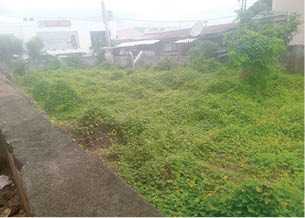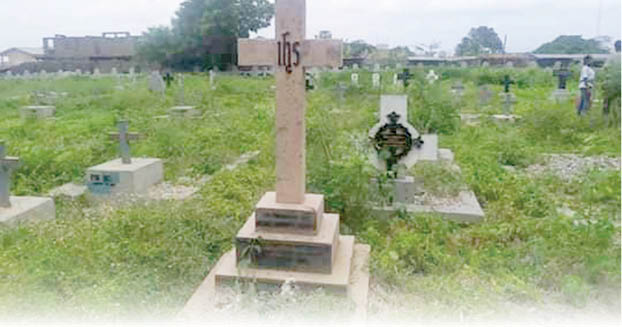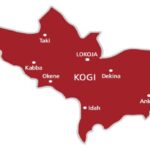Lokoja, the capital of Kogi State, is home to historic cemeteries where European soldiers and African missionaries who lost their lives during the colonial era were buried. However, a recent visit to these cemeteries revealed a shocking state of neglect. Despite their potential as tourist attractions and preserved monuments, the cemeteries are in disarray, overgrown with grasses and shrubs, suggesting that the colonialists and missionaries are not resting in peace.
The European and African cemeteries in Lokoja serve as a poignant reminder of the lives lost during the colonial era. Beneath the lush grasses and weathered tombstones rest the remains of missionaries, administrators, soldiers, and businessmen who came to Nigeria with dreams of conquest and progress.The strategic location of Lokoja, at the confluence of the Niger and Benue rivers, made it an attractive hub for European explorers and colonizers. However, many of them did not survive the harsh conditions, hostile natives, and diseases that plagued the region. According to historical records, hundreds of Europeans died in Lokoja, with many more buried in unmarked graves outside the city.
Dr Jato Amupitan, an octogenarian historian, attributes the high mortality rate to the fall of the Berlin Conference of 1884-1885, which regulated European colonization and trade in Africa. The Royal Niger Company, a British mercantile company, established its headquarters in Lokoja, followed by missionaries and administrators. However, the harsh environment and hostile natives took a heavy toll on the Europeans. Dr Amupitan said, “The Royal Niger Company, a mercantile company chartered by the British government, formed in 1879, as the United African Company, but renamed Royal Niger Company in 1886, berthed their ships in Lokoja, as its headquarters of operation.
“Sir Frederick Lugard, the governor-general of the then “Niger Area “, resumed in 1914, as the head of the British imperialist government and later made Lokoja his administrative headquarters.
“A sizable number of missionaries followed suit to spread the gospel of their faith at full speed as the land fell under imperialist’s security. Unfortunately, an uncountable number of them met hostile environments in human and nature, resulting in heavy casualties.

The victims could not be flown back to their native lands for burial but interred in Lokoja for logistics challenge.”.
It is not feasible to establish the actual number of those who died and were buried in these cemeteries as many were recorded to have died at various points of operation outside Lokoja and buried there.
Many corpses of those who died outside Lokoja were recorded not to have even been retrieved, while some were picked and ferried to these cemeteries for burial.
Weekend Trust reports that in the course of time, two out of the three European/African cemeteries that were located in the then thick forest near rivers Niger and Benue, are presently in the heart of modern Lokoja.
The third cemetery, said to be mainly for servants and aides of African descent, has gone into extinction due to the activities of developers and land speculators.
The largest European/African cemetery in Lokoja, which was fully fortified with a concrete fence, is presently sandwiched by the booking and loading park of the defunct Kogi State Transport Corporation: Kogi Travellers, secretariat of the Lokoja Local Government headquarters and residential buildings at a location popularly called, Cemetery Road.
The second-ranking cemetery occupied a small portion of land opposite Unity Bank, with Zenith Bank at its background and residential buildings at both sides.
While the majority of the tombs have lost their epitaphs to the activity of nature, others are contending space with flourishing weeds and grasses, making identification difficult.
However, some of the epitaphs on the tombs, which read: “Sgt-major J. Heafield died on 3rd October, 1899; Dr Hunter died 13th August, 1899 and Margaret Blanck Wood, daughter of the late William Robert and Fanmy Louisa Wood of Ericnton-England died on July 24th 1908,” refused to bow to grasses – their inscriptions are still visible.
Unlike other burial sites in the town that are constantly under the rage of perennial flooding, the European/African cemeteries are spared as both sites are located at a non-flood-prone plane.
The management of Kogi Hotels and Tourism Board, saddled with the responsibility of the place, said it is not resting on its oars to ensure that the cemeteries are kept clean.
The tour guide of the Board of Culture and Tourism, Yinka Adewoye, said clearing of the grasses at the cemeteries will soon commence, stressing that a permanent solution is being worked out to end the menace of grasses.
A former general manager of the Kogi Hotels and Tourism Board, Shaibu Lawrence, in a video clip, said clearing the cemeteries was difficult due to lack of funding.
“We are worried that no provision was made in the yearly budget for the maintenance of the cemeteries. It has made it difficult for us to put the place in proper condition to attract tourists,” he said.
Weekend Trust also reports that the challenge of ownership and responsibility has been rearing its ugly head in the management of the cemeteries and other historical sites in the state.
This has initiated a clash of interest, leading to a seemingly cold war between the management of Kogi Hotels and Tourism Board and the National Museum and Monuments.
The curator of the national museum, Lokoja, Rufus Elap, said the federal government had not acquired the historical sites officially, and the state government, which domain the sites are located, has not taken inventory in order to ensure proper funding and maintenance.
Elap further said efforts made in conjunction with the former general manager of the Kogi Hotels and Tourism Board to sponsor a bill to the House of Assembly for official documentation, recognition and funding of historical sites, including the cemeteries, did not see the light of the day.
“The matter has been taken up at the national level of my organisation and it is receiving attention. Four of such sites, including cemeteries, have been shortlisted and approved for national inventory and recognition.
“The process is still being observed. Without such a move, such important historical sites may go into extinction, with the people of the state losing accrued benefits,” he said.
He added that besides the economic gains, the sites may attract cordial relationships and strengthen mutual understanding, cohesion and other privileges for the people of the state outside the shore of the country.
“Europeans’ way of respecting their dead relatives is unique, so the cemeteries may be a goldmine if properly maintained to attract foreigners whose relatives were buried here. Only a synergy between the relevant organisations can repackage the place to meet an acceptable standard to achieve the dream.
“The fact remains that without an inventory of the historical sites, the place will not enjoy proper recognition, funding and maintenance.
“The concern of the National Museum and Monuments should not be viewed as gate-crashing or usurping someone’s responsibility but to stop unwholesome practices noticed around the cemeteries and make the historical sites attractive to tourists for the benefit of all,” he said.
Efforts made to speak with the new general manager of the Kogi State Hotels and Tourism, who has been in office for about three months, was not successful, as she was said to have travelled out of the state on an official assignment.

 Join Daily Trust WhatsApp Community For Quick Access To News and Happenings Around You.
Join Daily Trust WhatsApp Community For Quick Access To News and Happenings Around You.


